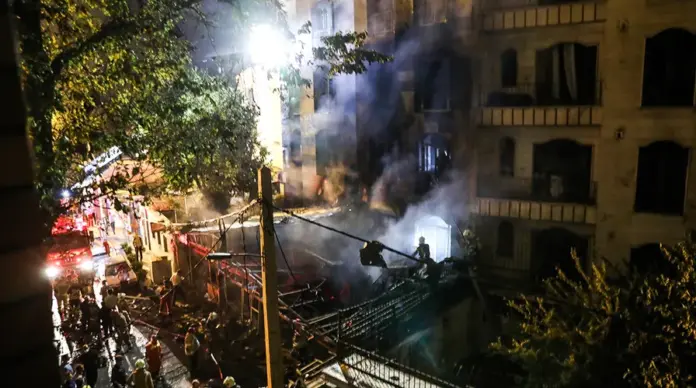Tehran awoke to pandemonium on Friday the 13th as huge explosions rocked the capital and surrounding cities, including Natanz, where Iran’s sensitive nuclear facilities are located. The attacks, which were conducted by Israel, represent a stark and perilous intensification of the lingering animosity between the two states.
The Israeli attack was against Iran’s nuclear program, military personnel, and strategic infrastructure. The mission hit “at the heart” of Iran’s uranium enrichment activities, Israeli Prime Minister Benjamin Netanyahu said. He assured that the offensive was also targeting top scientists and commanders in Iran’s defense establishment.
High-Profile Casualties
The strike killed Gen. Hossein Salami, head of Iran’s Revolutionary Guard, and Gen. Mohammad Bagheri, Iran’s chief of staff. Iranian state television verified their deaths, terming the strikes as “brutal crime” and an attack on national sovereignty.
Iran’s Supreme Leader Ayatollah Ali Khamenei vowed “severe punishment” in return, blaming Israel for attacking civilian areas and spilling innocent blood.
A Massive Operation
More than 200 planes were involved in the simultaneous operation, Israeli authorities said, and the targets numbered over 100. The airstrikes targeted nuclear sites, missile depots, and command centers, said Brig. Gen. Effie Defrin, an Israeli army spokesperson. Israel’s defense minister has warned of anticipated missile and drone retaliations from Iran.
Iran swiftly shot more than 100 drones towards Israel in retaliation. Airspaces over Iran, Iraq, Jordan, and Israel were closed, and black smoke billowed out of the Natanz nuclear facility, verifying direct hits.
Regional and Global Fallout
The IAEA said that Israel had attacked Natanz and reported it was monitoring radiation levels closely. Israel has long been worried about Iran building nuclear weapons, although U.S. intelligence holds that Iran presently does not have a nuclear weapons program actively in place.
In Washington, ex-US President Donald Trump dismissed previous knowledge of the strikes. Two days earlier, however, the U.S. had withdrawn diplomats from Iraq and cautioned its workers in West Asia about potential war.
U.S. Secretary of State Marco Rubio stated that Israel had acted alone and the U.S. had nothing to do with it. Earlier, Trump had asked Netanyahu to refrain from taking military action, citing ongoing talks with Iran.
Markets Shake, India Reacts
The geopolitical ripple effects were instant. Brent crude oil prices jumped almost 8%, and Israel’s Ben Gurion Airport was shut down for good. Iran and Israel both grounded all flights through their airspace.
India’s Ministry of External Affairs came out in “deep concern” and asked both countries to show restraint. “We urge dialogue and diplomacy,” the official note said, while also extending a willingness to mediate if required.
A Turning Point?
Netanyahu, facing fierce domestic criticism over the long-running war in Gaza, classified the operation as a national imperative. Netanyahu labeled Iran’s government as a “brutal dictatorship,” and stated that the attack could be the beginning of an “liberation” of the Iranian people.
The globe closely observes now with the specter of revenge hanging over it. The blasts in Tehran have not merely heightened regional tensions, but also put into the limelight the precarious thin line between diplomacy and destruction in West Asia.








